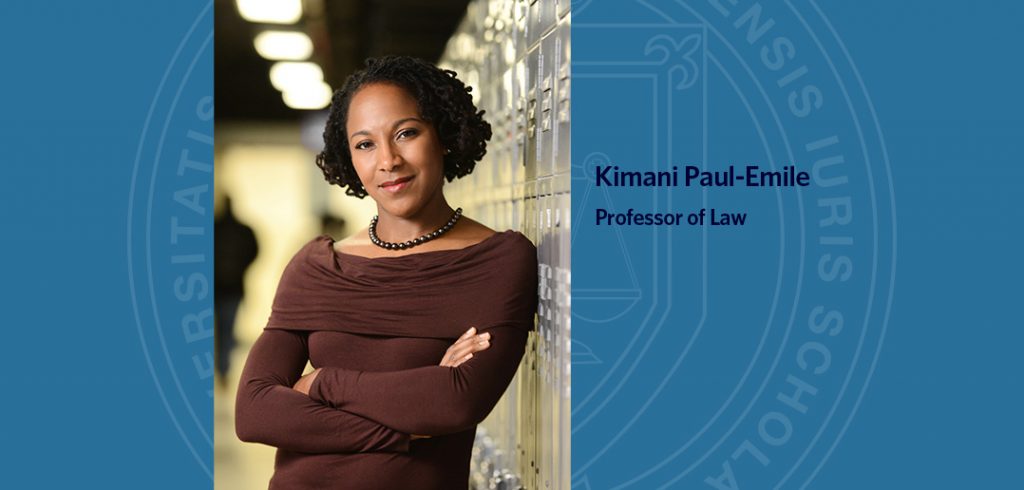Professor Kimani Paul-Emile, who was a featured panelist at an event hosted by the Petrie-Flom Center for Health Law Policy, Biotechnology, and Bioethics at Harvard Law School, was quoted in an article published by Harvard Law. She and other interdisciplinary scholars discussed the relationship between the law, race, and health.
Structural racism “refers to the disadvantage that results from the operation of several interconnected social and economic systems, such as education, employment, credit financing, housing, policing, incarceration,” added Kimani Paul-Emile, professor of law, associate director and head of domestic programs and initiatives at Fordham Law School’s Center on Race, Law & Justice, and faculty co-director of the Fordham Law School Stein Center for Law & Ethics.
“All these systems, although they can have independent effects, they’re often interrelated,” Paul-Emile continued. “The inequality that one system creates can be compounded and reinforced and disadvantaged by the others. And what’s most notable about structural inequality is that it can manifest in the absence of intentional racism.”
Paul-Emile explained that these structural factors explain much of the discourse around racial vulnerability to COVID-19. “When COVID first burst on the scene, many people assumed that the disparate impact we were seeing was because of something biological, and something unique to Brown and Black people that made them uniquely susceptible to the virus,” she said. “But, as we’ve since come to learn, it’s long-standing and, at one-time, state-sanctioned discriminatory practices that increase their exposure and susceptibility to the virus,” such as housing conditions, or the preponderance of minorities working in “essential,” low-wage fields, which puts them at higher risk for exposure to the virus.

